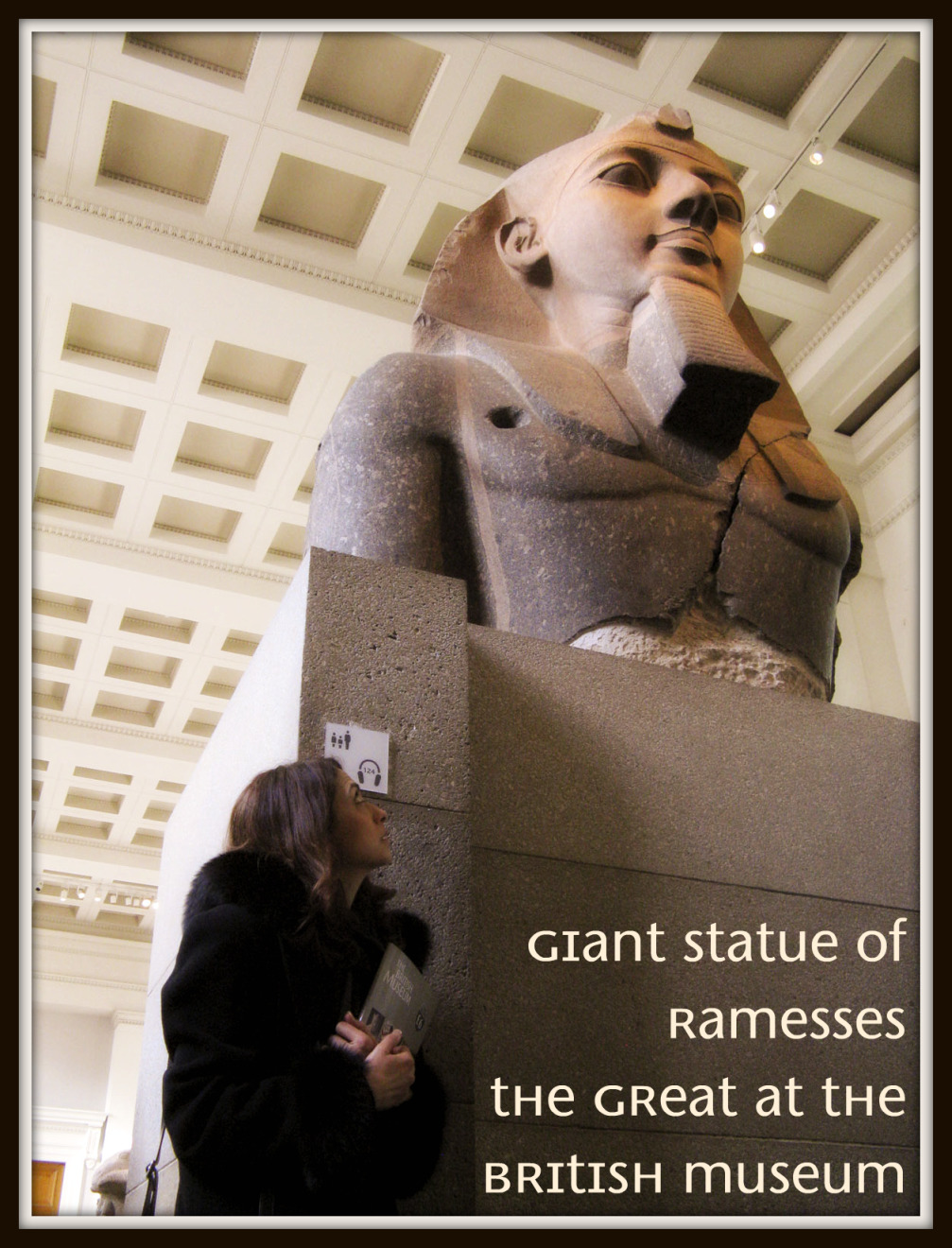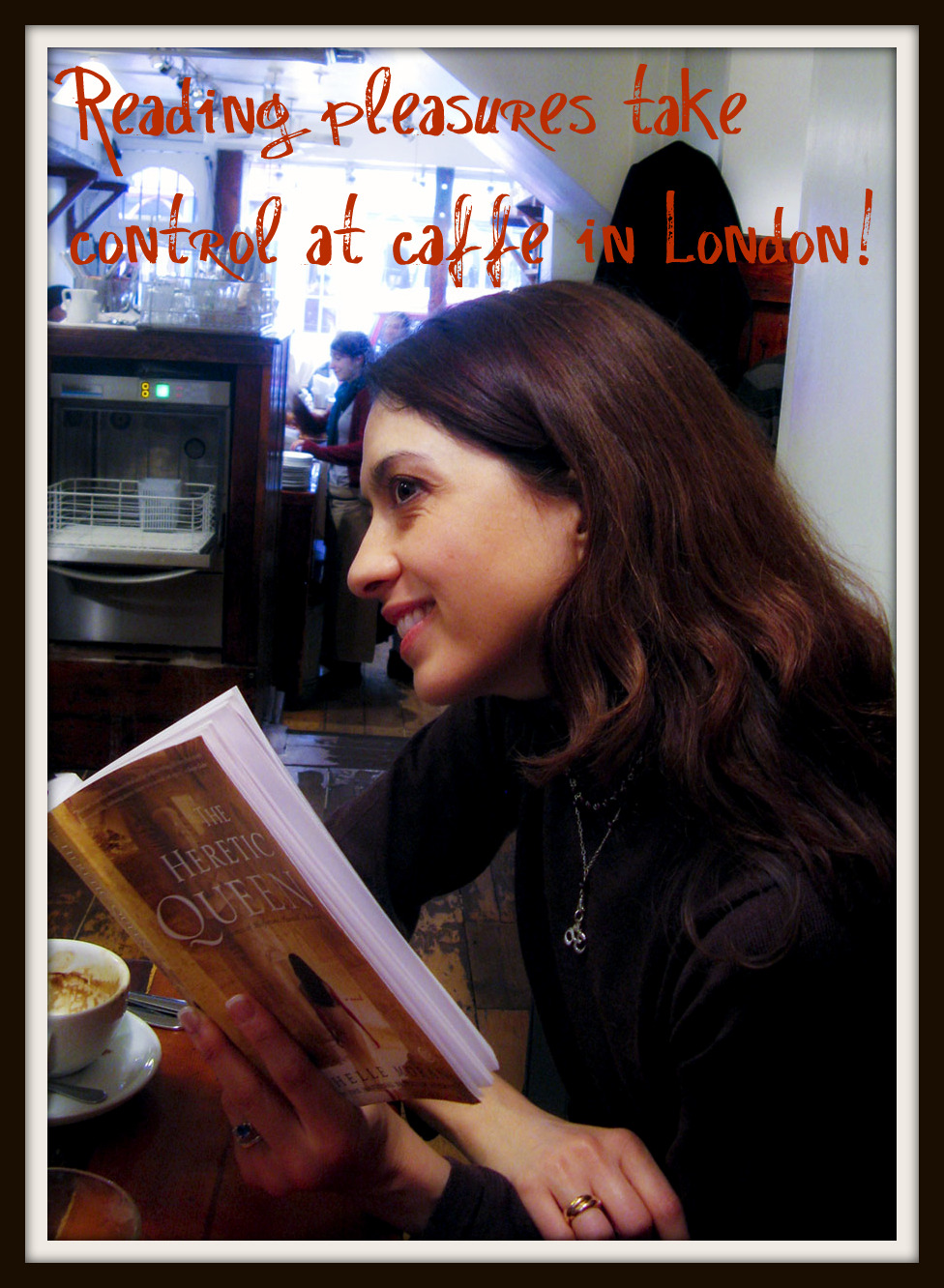
“I am sure that if I sat in a quiet place, away from the palace and the bustle of the court, I could remember scenes from my childhood much earlier than six years old.”
– Prologue to “The Heretic Queen”
I wish there were still a thousand more pages to read but alas I have finished reading all of Michelle Moran’s fantastic fiction! I could not have imagined a more fulfilling journey through time back to Ancient Egypt than the one taken through Moran’s genuine voice and her simple yet beautiful prose. “The Heretic Queen” tells the story of young Nefertari which takes place nearly half a century following Nefertiti‘s reign.
In her historical fiction, Moran clearly identifies fact from fiction and the reader has a clear idea what may have perhaps taken place, in so much as we know the facts of history at the time, and what is the flight of beautiful imagination on Moran’s part. The simplicity of the writing style and story telling grasps your attention for much longer than it should by all logic. The story becomes addictive in small, measured steps and your imagination gets the better of you, because how can you exit the world of Ancient Egypt after entering it without learning the outcome?
Moran’s protagonist has a simple, clear, and sincere voice. In her first novel Nefertiti, Nefertari’s mother, Mutnodjmet is our story teller and in this story, Nefertari herself takes us through the ups and downs of her young adulthood and shares her incredible transformation from a heretic tossed-aside princess to the future Queen of Egypt and the Chief Wife of Ramesses the Great.

Thebes, Egypt. 1283 BC. The Egyptians have taken back their banished Gods (after the fall of Pharaoh Akhenaten and Nefertiti) and have promptly erased this Pharaoh and his Queen from history. The enormous city of Amarna is reduced to sand and dust and Thebes is once again the glorious capital. Akhenaten is regarded as the Heretic King who took away their Amun and Nefertiti the Queen whose name is uttered neither within the walls of Palace nor in the streets of Thebes. Mutnodjmet, mother to Princess Nefertari and sister to Nefertiti, lost everything – her parents, her son, her husband – in an intentional fire by Horemheb whom she was then forced to wed. She died giving birth to little Nefertari who was raised by her sweet, loving nurse, Merit. She loves Merit as her own mawat, mother. It was easy to do; I fell in love with Merit’s character as much as with Nefertari herself.
We run through the palace halls and courts and gardens through Nefertari’s innocent eyes. She is a wild child with a good heart and great love for Ramesses II but she has little notion of the forces around her. While still treated like an outcast – with a “Heretic” family – she is undeniably a Princess, a Queen’s daughter, regardless of her akhu, the soul and deed of her Ancestors, and Ramesses has loved her since they were both children. Naturally, the evil forces in the palace exploit Nefertari’s relations to her bloodline as an irrevocable flaw, a tattoo stamped on her forehead through no actions of her own, and use it as enough reason to get her banished from palace and court altogether. Nefertari triumphs only too beautifully.
Reading is the best pastime for an active mind! If you like to see the other book reviews, check the index of In Print.
My most favorite moments in this book come from watching the duckling turn into an intelligent, well-groomed and visionary future Queen. It was only too pleasurable to see the complete oversight of her enemies in assessing Nefertari’s determination. Only too shocked with the turn of events, they could not begin to imagine that education can surpass beauty and a Pharaoh may highly seek that trait in his future Chief wife. Nefertari learns 5 languages by the time she is 15, along with defense strategies of defending the Egyptian land from enemies at war, settling problems at court, and winning the hearts of a nation that called her an outcast.
The plot would be mostly ordinary if it were not for the period. It is the element of ancient Egypt and the way of life and royalty as it may have been over 3200 years ago which unusually stirs my imagination. Astronomical in human years and insignificant in the years of this universe, so much has naturally changed but still, so much seems to have possibly remained the same over three millennia later. In Michelle Moran’s historical fiction, the basic deeds and lessons of Nefertari’s generation bear an uncanny resemblance to that of our own. To learn and alas not to forget:
That integrity and honesty is the way of a good life
That ill-intentions and mistreatment of others will not go unpunished, no matter how unfair life seems at times
That patience has its rewards and rash judgment its cost
That education and intelligence can surpass empty beauty
That rumors spread fast and bad people may seem all-powerful at first but almost always own up to a huge weakness
That a good heart will be noticed sooner or later even in the face of all adversity
That a woman can be a warrior and her sound decision-making and true leadership can move a nation to action and betterment
That few things can get in the way of true devotion and pure love
That it is not what you believe in so long as you have faith, you will thrive

The simple guidelines of a full-filling and rewarding life. We read about them in novels, watch them in movies and hear them in real life stories around us. Yet we still get caught up in the tangled web of humans temptation even three thousand years later and perhaps will refuse to learn to live every day in the best possible way we are capable and knowledgeable of doing. “To err is human..” and to learn from history divine!
Even though we hardly worship Gods for every occasion in our lives and do not believe as fiercely in the afterlife as the Ancient Egyptians did, we can see that goodness thrived, families existed and love conquered the hearts of even an Egyptian Queen and her Pharaoh. It is recorded that Ramesses the Great built the most beautifully adorned tomb in all of Egypt for his wife, Nefertari. Written in hieroglyphics on the walls of her burial chamber, you will find these eternal words:
“My love is unique – no one can rival her, for she is the most beautiful woman alive. Just by passing, she has stolen away my heart.”
 I am Farnoosh, the founder of Prolific Living. So glad you are here. My mission is to empower you to unblock your creative genius to live your dream life.
I am Farnoosh, the founder of Prolific Living. So glad you are here. My mission is to empower you to unblock your creative genius to live your dream life.